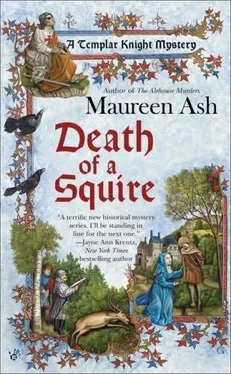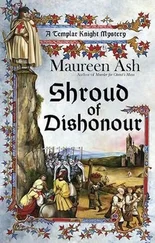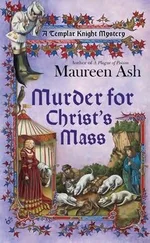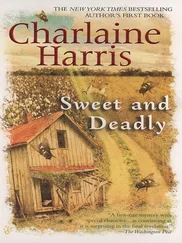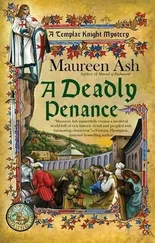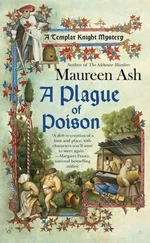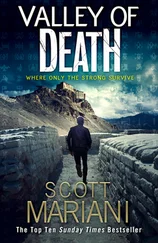Maureen Ash - Death of a Squire
Здесь есть возможность читать онлайн «Maureen Ash - Death of a Squire» весь текст электронной книги совершенно бесплатно (целиком полную версию без сокращений). В некоторых случаях можно слушать аудио, скачать через торрент в формате fb2 и присутствует краткое содержание. Жанр: Исторический детектив, на английском языке. Описание произведения, (предисловие) а так же отзывы посетителей доступны на портале библиотеки ЛибКат.
- Название:Death of a Squire
- Автор:
- Жанр:
- Год:неизвестен
- ISBN:нет данных
- Рейтинг книги:3 / 5. Голосов: 1
-
Избранное:Добавить в избранное
- Отзывы:
-
Ваша оценка:
- 60
- 1
- 2
- 3
- 4
- 5
Death of a Squire: краткое содержание, описание и аннотация
Предлагаем к чтению аннотацию, описание, краткое содержание или предисловие (зависит от того, что написал сам автор книги «Death of a Squire»). Если вы не нашли необходимую информацию о книге — напишите в комментариях, мы постараемся отыскать её.
Death of a Squire — читать онлайн бесплатно полную книгу (весь текст) целиком
Ниже представлен текст книги, разбитый по страницам. Система сохранения места последней прочитанной страницы, позволяет с удобством читать онлайн бесплатно книгу «Death of a Squire», без необходимости каждый раз заново искать на чём Вы остановились. Поставьте закладку, и сможете в любой момент перейти на страницу, на которой закончили чтение.
Интервал:
Закладка:
“Are you John Chard?” Bascot called up to the man on the ladder.
“I am,” was the laconic reply.
“My name is Bascot de Marins. I have been sent by Sheriff Camville to enquire into the murder of a young man in the forest near here. I need to ask you some questions.”
The man made no reply, nor did he seem in awe of Bascot’s rank, or the fact that he was armed. He continued to concentrate on his task. Bascot felt his temper rise, but held it in check. He knew only too well how deep ran the resentment of those who had to answer to a master. Charcoal burning was a filthy job, demanding that the stacks be watched day and night to keep the fire under control, and it was dangerous, too, for when the stack was finally cool enough to extract the charcoal there was always the possibility that it would burst into flame and consume not only the wood, but the charcoal burner as well. There was little profit in it either, for despite the skill that the procedure required, and the demand for charcoal for braziers and the forges of smiths, there was little remuneration to be had, especially after the licence to operate had been paid.
Bascot walked over to the youngster standing at the door of the hovel. At his approach, the dog emitted a low tentative growl, which soon subsided when the boy administered a sharp cuff to the animal’s head.
Bascot gestured to Chard and spoke to the boy. “Go up on the mound to your father and tell him that I will wait only long enough for him to descend his ladder before I use my mace on the sides of his stacks. Then he will either talk to me or I will take him to be questioned by the sheriff.”
The boy, eyes wide in his dirty face, nodded quickly and ran to the mound and scampered up the ladder. After pulling urgently on the back of his father’s jerkin he whispered Bascot’s message. The charcoal burner turned and gave the Templar a stare of sullen resentment, but did as he had been told, and shambled over to stand in front of his tormentor. Chard’s face was just as dirty as his son’s, his hands and nails black and ingrained with a dirt that had been there so long it would never wash off. The goatskin garment he wore gave off a pungent smell and was stiff with old sweat and grime. Giving his young son a push and telling him to go up on the stack and continue with the task of stopping up the vent holes, the charcoal burner at last grudgingly gave Bascot his attention.
“You have heard of the death of a lad, a squire in William Camville’s retinue, found hanged in a tree not far from here?”
Chard gave his head a slight nod.
“Where were you the night before he was found?” Bascot’s tone was sharp.
“I’m here every night,” Chard replied. “My sons are too young to be left with the care of the fires. I have to do it.”
“Did you hear or see anything of the dead boy on that night?”
“No.” The answer was surly.
Bascot drew a deep breath and tried to summon up patience as he walked to the stump of a newly hewn tree and sat down. He decided to try a different tack.
“Who takes the charcoal to sell?” he asked.
“My eldest son,” the charcoal burner replied with a jerk of his head in the direction of the bigger of the two boys, still perched atop the middle mound and watching them both fearfully.
“Did he go to Lincoln that day?” Bascot asked.
Chard nodded his head. “He did. And returned before sundown. He and my younger boy were in the compound through all the hours of darkness.”
Bascot called up to the boy. “Did you see or hear anything unusual on your journey?”
Before the lad could speak, his father interrupted. “He did not. I told you. We were here all that night. No one came near nor by.”
Bascot stood up and drew the short sword he carried in his belt. He walked over to the stack that the charcoal burner had been plugging and dragged the top of his knife across the top of one of the squares of turf that formed its cover. Almost immediately a little puff of smoke appeared. He turned to Chard. “I have little inclination to be lenient with you, burner. You are insolent and uncooperative. Your very manner tells me you have something to hide. Either you tell me what it is willingly, or I take you to the sheriff and let him force it out of you. The choice is yours.”
Still the charcoal burner stood silent, his wide mouth set in a stubborn line. The dog began to whine. Bascot, his patience at an end, stepped forward and said, “Very well, Chard. You have made your decision.”
At these words the elder son, from his perch atop the smoking mound, let out a yell. “No! Tell him, Da! For the sake of Our Lord, tell him.”
Chard looked up at his son. “Shut your mouth, Adam.”
“No, Da, I will not.” The boy scrambled down and came to stand by his father, resolution on his thin grimy face. “I did see summat that afternoon,” he said to Bascot. “Just as I was coming home. A horse and rider were ahead of me on the path. There was a girl, too, up behind, on the pillion.”
Chard interrupted once more. “This has nowt to do wi’ us, Adam. If the sheriff can find someone to blame he will, whether they be guilty or no. You are putting your head in a noose, and mayhap mine and your brother’s as well.”
“No, burner, you are wrong,” Bascot told him coldly. “If you are innocent, you have nothing to fear.”
The charcoal burner gave him a scornful look of disbelief, but said nothing. Bascot left him to his doubt and turned once again to the boy. “Did you recognise either of these people? Did you see where they went?”
The boy hesitated for a moment, glanced at his father’s face, and answered with a deliberate shake of his head. “No, sir. And that’s the truth. I could tell they were my betters by the fineness of the horse and the cloak the girl wore. If they were bent on a loving spree they would not take kindly to the likes o’ me spying on ’em. So I stopped the donkey and waited for a spell. Once they had disappeared up the path, I took a different track to get back here.”
“Did you get a look at the girl’s face?”
Adam shook his head. “She had her back to me and the hood on her cloak was up.”
“Nothing else?” Bascot asked, disappointed.
“No, sir. That’s all.”
The charcoal burner relaxed his stance now, a look of resignation on his face. Bascot spoke to him once more. “I will ask you again, Chard-did you hear anything later that night-a scream, a shout for help, anything?”
The man shook his head in negation and his eldest son did, too. Even the little one, still crouching down by the dog, moved his head sideways in agreement with the others in his family. Bascot knew he would get no more out of them.
Thirteen
Hubert’s uncle,Joscelin De Vetry, arrived late that afternoon. He was a corpulent man of middle height with a mane of dark curly hair frosted with grey. His face was fat, creased with lines that seemed to show a genial temperament but his eyes, for all their sparkle, were busy as he looked inquisitively about him. The clothes he wore were of good quality; his cloak was lined with fur and there was a finely set piece of amber surrounded by silver filigree on the side of his cap. On his arrival, Nicolaa de la Haye’s steward provided him with refreshment in a corner of the hall and sent to inform his mistress of the man’s presence.
De Vetry’s manner to the castellan was courteous, but not overly respectful. He was, he explained, only Hubert’s uncle-by-marriage, his wife being the sister of the mother of the boy.
“You will know that Hubert’s father is dead,” he said, “and since all his other male relatives are away from home, it was thought best if I came to escort the boy’s remains back to his mother so that she may bury him.”
Читать дальшеИнтервал:
Закладка:
Похожие книги на «Death of a Squire»
Представляем Вашему вниманию похожие книги на «Death of a Squire» списком для выбора. Мы отобрали схожую по названию и смыслу литературу в надежде предоставить читателям больше вариантов отыскать новые, интересные, ещё непрочитанные произведения.
Обсуждение, отзывы о книге «Death of a Squire» и просто собственные мнения читателей. Оставьте ваши комментарии, напишите, что Вы думаете о произведении, его смысле или главных героях. Укажите что конкретно понравилось, а что нет, и почему Вы так считаете.
